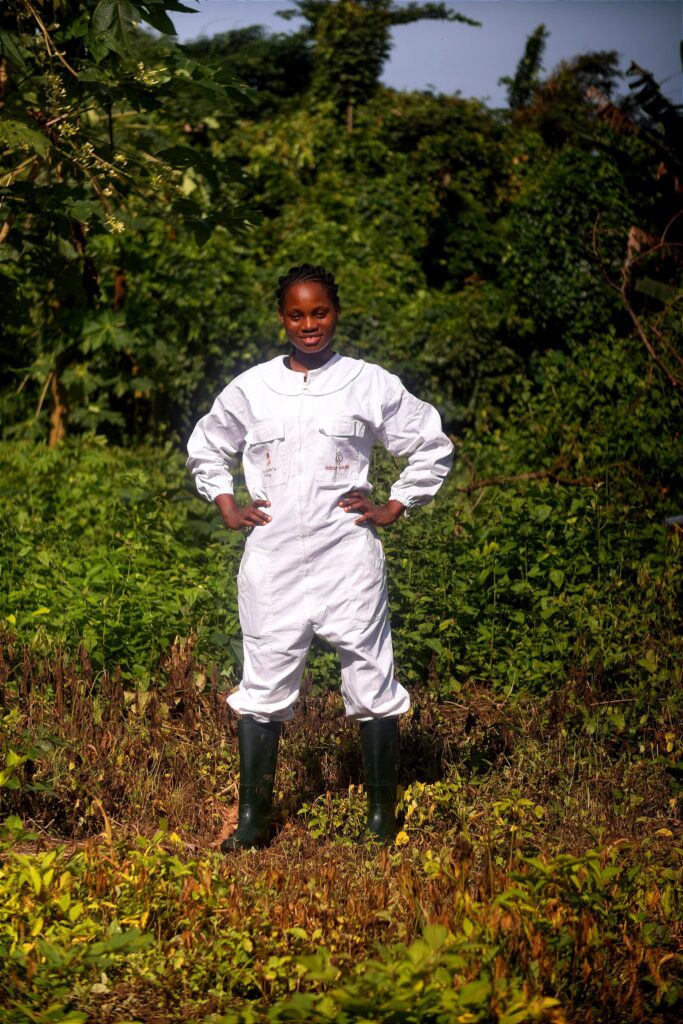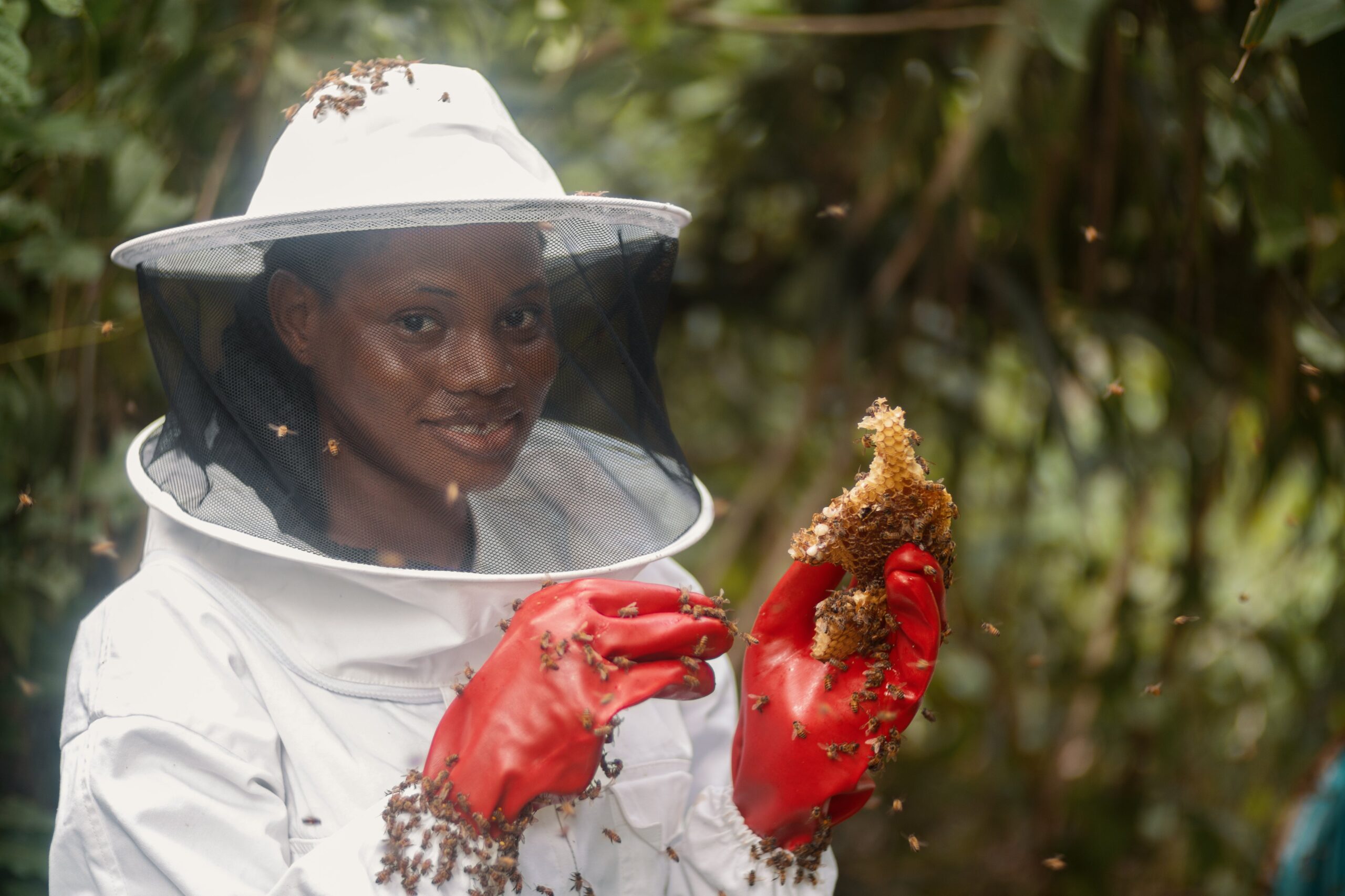Globally, the apiary industry is experiencing significant growth, evolving into a multi-billion dollar sub-sector and generating foreign exchange earnings for numerous countries.
Since 1961 the world’s beehive stock has increased from 50 million to approximately 98 million in 2019. In the United States of America, an annual production of approximately 109,799,366.60 kilograms of honey, valued at $24,200,000.00, is reported.
However, Nigeria, like many other developing countries, has yet to fully harness the potential of the honey and bee business. In a report published in December 2018, the Ministry of Agriculture said Nigeria spends over $2bn annually on the importation of honey.
For a large number of those who invest in the honey business, it has been a common practice for them to turn sugar into honey or formulate their way around creating the product which has led to food poisoning. While many people who can afford to buy imported honey do so, many others buy locally-made honey that is produced inappropriately.
Fauzziyah’s Honey
Speaking at the 2022 World Bee Conference, the consul general of Nigeria in New York said that about 10 million Nigerian households consume honey worth $30 million every year.
Despite the huge economic potential within the industry, women, who make up at least half of Nigeria’s potential and 70 to 80% of our smallholder farmers still face restrictions in the industry- women own fewer lands, and face discriminatory access to credit facilities, hindering their ability to start bee farming or expand already existing farms.
Despite facing challenges, Fauzziyah Isiak was motivated by a personal experience with a relative who died from contaminated honey. She decided to start bee farming to produce safe and edible honey, aiming to help others.
According to her, she went into agriculture as a teenager because of how her background inspired her.
“My dad was a building contractor. But, because he owned a farm, we could get fresh produce without having to pay for it. We had no reason to buy garri, fufu, vegetables, and pepper in the market. This inspired me to consider agriculture a career”, Isiak told Prime Progress.
After secondary school, Isiak utilized her waiting days for admission into tertiary institutions to learn about poultry farming. In the process, she also learned about planting cucumber and maize. This became a major source of income for her as a young girl.
But when she joined the Nigerian Police force she took a break. However, in a surprising turn of events, she later left law enforcement to fully dedicate herself to farming, despite the challenges associated with agriculture in Nigeria.

“Then, I just wanted to engage in farming that wouldn’t require daily expenses. Therefore, I decided to learn beekeeping practically and subsequently took several online courses on apiculture,” she said.
To minimize expenses and ensure the safety of her customers by avoiding adulterated products, she opted for the more challenging method of producing honey – the natural procedure.
“As a biodynamic beekeeper, I don’t interfere with the lives of the bees. Instead, I construct beehives that attract wild bees, which are an endangered species. I then take these beehives to the forest, where the bees move in and produce honey over time,” she explained, describing the natural process she employs to harvest honey from wild bees.
Fauzziyah runs a honey business called Fauzziyah’s Honey. Her rule is simple: she only sells honey that she harvests from bees in their natural state. She’s firm about this, even if more people start buying from her.
The decision to produce honey appropriately is a major challenge that Isiak joyfully embraces. Isiak mentioned that many times, she would expect bees in the beehives she had left for many weeks in the past, only to find out that the bees had absconded with their honey. This disappointment usually leaves her with no option but to wait or find another forest to access the produce she needs.
Insecurity in Nigeria is another issue Isiak identified as challenging for her as an apiarist. “There is an issue of insecurity that I face often because I am a woman. There have been situations that have forced me to abandon beehives. Last year, I was in a place where the beehives and bees were burnt due to insecurity,” she said.
Deforestation and bush burning were also mentioned as problems usually encountered in Isiak’s production. “Farmers sometimes start a new year by setting fire to the bush during harmattan. And then, you know, bushfires burn very quickly. So when the fire gets near bees, they sense danger and become scared of the fire,” she said.
Amidst the challenges of her work, Isiak produces for more than two thousand customers reducing the figures for the importation of honey in Nigeria. Through the instrument of social media, Fauzziyah’s honey is thriving.
Isiak went further to advocate for the cessation of the killings of bees by farmers and called for support in practising apiculture in Nigeria. “People don’t know how much work we do here in Africa with beekeeping. Because people compare the bees they see on YouTube with the ones we have in Nigeria. Some of the bees can sting one to death. There was a day that a bee stung me on the vein, and I almost fainted, and I was the only one in the forest. So even with the white cloth protection, they still sting. We have aggressive bees here,” she said.






